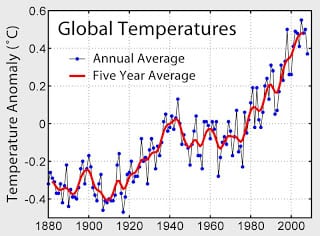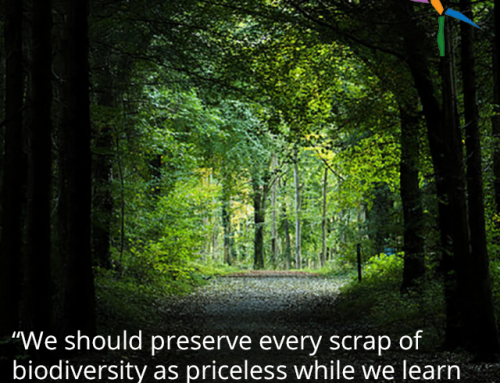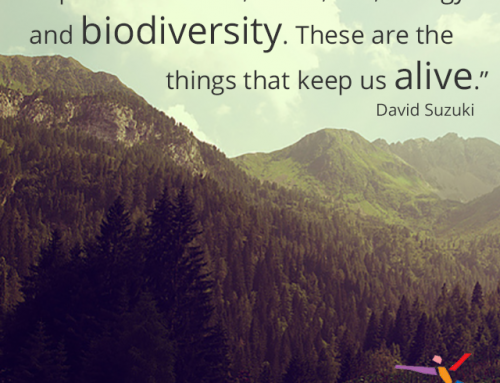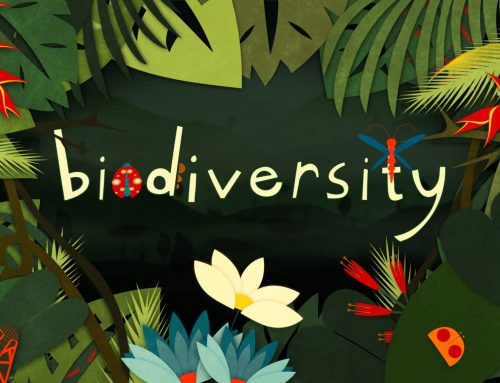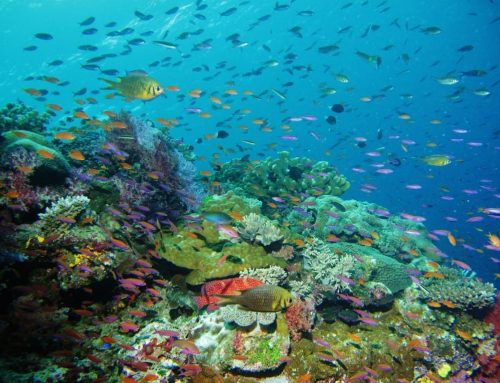By Michael Beck
 Global warming deniers accuse environmentalists of hyping climate change into a Big Scare, turning it into yet one more liberal plot to deprive patriotic Americans of their sacred right to consume as much stuff as they damned well please.
Global warming deniers accuse environmentalists of hyping climate change into a Big Scare, turning it into yet one more liberal plot to deprive patriotic Americans of their sacred right to consume as much stuff as they damned well please.
It’s certainly not a plot, but the deniers have a point.
In the long term, climate stability means pushing global atmospheric CO2 back below 350 ppm (parts per million). Not only is the current level shooting past 388ppm, the rate of increase is itself accelerating – and that’s coming mostly from the emissions of only about 1.5 billion middle-class consumers globally (out of a total population of 6.7 billion). But the joker is that at least two billion more aspiring middle-class consumers in the emerging economies are clamoring to join the club.
Imagine if the rich countries were to turn to these emerging economies – countries like China, India, and Brazil – and say, “Sorry, folks, but since the planet can’t even handle the impact of the current rich economies, there’s no way you guys can join us.” Perhaps it’s better not to imagine how those countries would react, given that China and India are nuclear powers, and who knows about Brazil?
Something’s got to give, and deep-down the naysayers know it. Nonetheless, as Dr. Peter Whybrow points out in American Mania: When More is Not Enough, our entire consumerist economy depends on the addiction to ever more stuff. And just as individuals ferociously deny both the fact of addiction and its self-destructive consequences, societal addictions follow suit: if you ask the naysayers, neither America’s runaway consumerism nor its environmental train wreck calls for action. Nope, they don’t even exist.
I see a two-pronged solution. The traditional fix for addiction, the tough-love approach where family and friends confront the addict, would only apply to the hard core deniers at the societal level, those who’ve staked their self identity on the political fundamentalism of laissez-faire economics. The more general fix, the ‘gentle education’ that I broached in my previous blog, works better for middle-of-the-road folks who pay equally little attention to climate change or hard-core politics. We at Postconsumers offer them a way to gradually refocus themselves away from manic consumerism towards a more uplifting American Dream.
Giving up our culture’s hyper-consumerism in no way requires us to abandon the dignity of having enough to be satisfied, though it does mean making more time for traditional core values such as family, friends, healthy lifestyles, spirituality and communion with nature. The Postconsumers mindset does much more of course. The spread of satisfying, mindful consumption should convince even some of the deniers that their dogmatism is toxic not just to the environment but even to the simple joys of being alive. Ultimately Postconsumers promises a more joy ous and grounded lifestyle than consumerism, and as such will help us navigate our growing ecological crisis before it can morph into ecological collapse.
ous and grounded lifestyle than consumerism, and as such will help us navigate our growing ecological crisis before it can morph into ecological collapse.
____________
The graphs to the right show the correlation between rising C02 levels and rising average global temperature.
